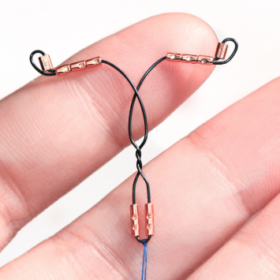
Types of contraception
In this article
What's the lowdown?
Types of contraception can be divided into hormonal and non-hormonal and short-acting, long-acting or permanent contraception
Your choice is individual, based on your medical history, preferences and side effects
Choosing can be a minefield, so we’ve created handy tools to support you
It may seem like there are hundreds of brands and types of contraception to get your head around. However, we can group the different types of contraceptives to make it easier to see your options.
Different types of contraceptives
We can group contraceptives in several ways, with types often being included in more than one group like a huge contraceptive Venn diagram. The different ways to classify contraception include:
- Hormonal v non-hormonal contraceptives
- Combined v progestogen-only hormonal contraceptives
- Short-acting, long-acting or permanent contraception
Hormonal v non-hormonal contraceptives
There are huge benefits of hormonal contraceptives like stopping or regulating periods but also for managing the symptoms of reproductive health conditions such as endometriosis, PCOS and adenomyosis. However, some people can really struggle with side effects from hormones or prefer to avoid them.
- Hormonal contraception
- Oral contraceptive pills. There are 2 main types of contraceptive pills – the combined pill or the progestogen only pill.
- Contraceptive patch. The patch is a combined form of hormonal contraception that you wear on the skin.
- Contraceptive vaginal ring. This form of contraception contains both oestrogen and progestogen and is inserted into the vagina.
- Injection
- Implant
- Hormonal coil
- Barrier methods of contraception such as the male or female condom
- The copper coil, also known as the IUD (intrauterine device).
- Natural methods of contraception, also known as fertility awareness methods
- Permanent methods of contraception – sterilisation and vasectomy
Combined v progestogen-only hormonal contraceptives
Combined hormonal contraceptives contain both oestrogen and progestogen hormones. Progestogen-only contraceptives only contain, as it says in the name, progestogen. Some users may not be able to safely use oestrogen due to their medical history, so progestogen-only options offer a good alternative.
- Combined contraceptives include the combined pill, vaginal ring or patch
- Progestogen-only contraceptives include the progestogen-only pill, implant, injection and hormonal coil
Type of contraceptive pills
Not only are there 2 types of contraceptive pills: the combined pill and the progestogen-only pill. But there are also many brands and varying levels of hormones within each type.
There are over 40 different brands of pill, with over 30 different brands of combined pill and 10 different brands of progestogen-only pill……it can be confusing, which is why The Lowdown exists.
Short-acting, long-acting or permanent contraceptives
Contraceptives can also be grouped depending on how long they last for. Short-acting contraceptives are used regularly and stop working quickly when you decide to stop using them. They are useful as you can start or stop your birth control easily, but can require more effort to remember to use them correctly.
Long-acting reversible contraceptives can last between 3 months to 10 years depending on the method and brand. We like the phrase “fit and forget”, meaning that after you have the birth control method injected or inserted you don’t have to do anything and are protected from pregnancy until it runs out.
Permanent contraception is for those people who are sure they don’t want any or any more children as they are not easily reversible and are designed to make you permanently infertile. This is known as sterilisation.
- Short-acting contraceptives include:
- Long-acting reversible contraceptives include:
- Permanent contraceptives include:
Barrier methods of contraception
Barrier methods work by stopping sperm meeting an egg to prevent pregnancy. The most popular is the male condom, but there are others!
Barrier methods of contraception include:
Which methods of contraception protect against STIs?
The ONLY method of contraception that can protect against sexually transmitted infections (STIs) is a condom. This can be a male or female condom. It’s advised to use condoms alongside another form of contraception with a new partner, or until you have both had up to date sexual health checks for sexually transmitted infections.
Which contraception is best for me?
We get it, it’s complicated. The best contraception is the one which you will take correctly and consistently. This means it has to be safe for you, be a method that you are willing to use and which has side effects that you can manage, or preferably none at all. Usually, this is discussed with your healthcare professional.
We have developed tools to guide you through how to choose your contraception, which include the latest research evidence. Our contraception recommender will help you decide “which contraception is best for me” and our comparison tool will help you decide between different types of contraception.
As always, we have lots more in depth information to support your decisions in our health hub, so please spend some time reading our medically reviewed and up to date articles.
Our medical review process
This article has been medically reviewed for factual and up to date information by a Lowdown doctor.







